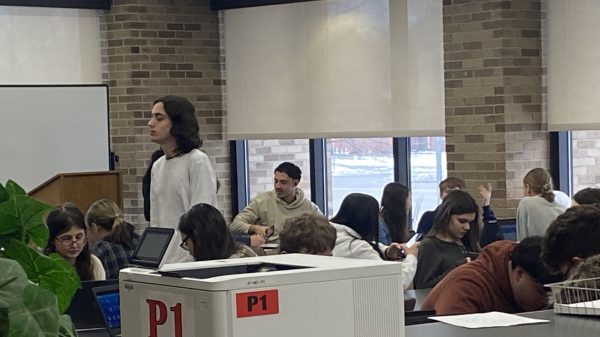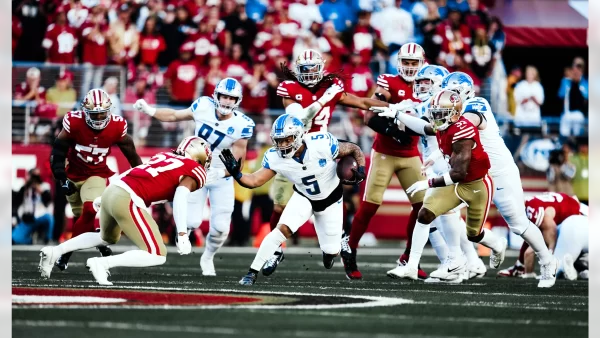Caffeine in Teens
From coffee and tea to energy drinks and chocolate, caffeine can be found in many foods and drinks.
The popular stimulant found in many plants is often consumed for its effects on alertness and focus.
“I do not feel dependent on caffeine nor do I regularly drink caffeinated drinks,” Aidan Petras ’23 said. “I use caffeinated drinks for an extra boost when I need it, such as a long study night or to focus on work.”
Throughout history, caffeine has been a major part of culture. Caffeinated cocoa drinks were created by ancient Mayans. A Chinese emperor is said to have discovered tea and coffee was discovered in Arabia. Figureheads of temperance movements promoted replacing alcohol with coffee. Afternoon tea became a symbol of high society, and excess taxation of tea led to the American Revolution.
Today, meetings and friendly socialization happen over a cup of coffee. Some workplaces have designated “coffee breaks.” Tired parents rely on caffeine to power through each day, and tired teenagers use coffee to stay awake during early morning classes.
“It is very hard for me to fall asleep, which often causes me to get less hours than I need,” Jessica Jakaj ’21 said. “Because of that, when I wake up in the morning, I need some coffee to wake me up before school. I do not think that I am caffeine dependent. I can live without coffee and I do not think it affects me that much. If I have caffeine early in the morning, it does not really affect my ability to sleep. But, if I have it in the afternoon or later, I can find myself a bit restless when I try to sleep.”
Because caffeine can be so useful, it is easy to ignore the negatives. It can help a tired person stay awake and alert during morning tasks, it can alleviate headaches and is even found in headache medications. But, all good things have some negative effects.
“I do not believe that any factors in my life make me feel the need for caffeine, and I do not think that I am dependent on caffeine,” Jezelle Manni ’22 said. “I think that drinking caffeine gives me way too much energy on top of the energy I already have. At times, I think even caffeine can contribute to anxiousness.”
Caffeine is a psychoactive substance that alters the brain but can be harmless in small doses.
“Caffeine affects the prefrontal cortex area of the brain,” Sarah Rauner, CNPN (Certified Pediatric Nurse Practitioner), said. “This area of the brain also controls focus, attention, impulse control, planning and anticipation. These things are quickly and falsely affected by caffeine initially. As it wears off, in comes slow responses and poor decision making due to fatigue. Caffeine is a central nervous system stimulant that can boost mood, increase metabolism, and improve concentration. Replacing sleep with caffeine in the long term can decrease sleep hygiene. In turn, anxiety, restless sleep, poor concentration and decreased productivity. In certain situations, like driving, operating machinery, and situations that require astute attention poor judgement can occur as caffeine wears off.”
Although it is not a serious as some drugs, caffeine is still a drug that can cause chemical changes in the brain.
“I feel caffeine dependency is similar to other addictive stimulants,” Sydney Nguyen ’21 said. “I do not often consume extensive amounts of caffeine, but I simply get sudden boosts of energy. Caffeine, depending when consumed, does not often affect my sleep ability. I would not say I am caffeine dependent as I do not enjoy the taste of most things that contain caffeine.”



